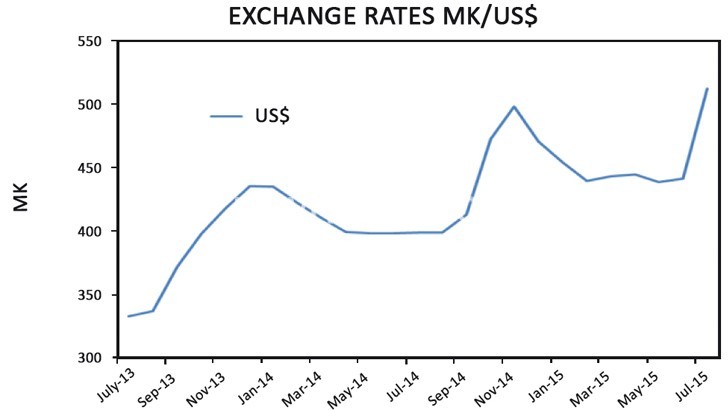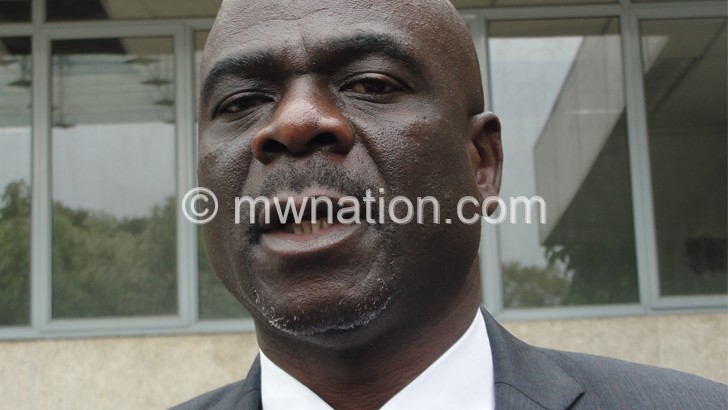Kwacha volatility sends shockwaves
The continued depreciation of the kwacha is driving up the cost of living and increasing social stress in the country, a situation the Malawi Confederation of Chambers of Commerce and Industry (MCCCI) has described as “getting out of control”.

“If we have so much foreign exchange in reserves, why is forex too expensive? I thought it is a matter of supply and demand. This clearly shows that there is little or no forex in our reserves; hence, it is too expensive to buy foreign currency,” said Newton Kambala, president of MCCCI in an interview on Tuesday.
“As the voice of the private sector we are very worried. The business community is concerned about this kwacha volatility, but there is little that we can do. Malawians have not seen the impact yet; they should expect tough times ahead. It will be tough,” he warned.
Kambala said the industry is shrinking and the long-term impact might be massive job losses.
The local unit has over the past two months lost about 30 percent of its value to the dollar to trade at K568.
The fall in the value of the kwacha comes at a time tobacco markets are still open, and cumulative foreign exchange reserves are at an estimated $988.73 million or about 5.75 months of import cover.

As of Tuesday, the tumbling kwacha hit a record low of K610 in most foreign exchange bureaus and nearing K650 on the black market, while averaging around K550 in most Authorised Dealer Banks (ADBs).
Kambala said since Malawi is a net importer, most goods are tied to the dollar and any slight gain or loss in kwacha value has a direct impact on imported goods and services.
Blantyre-based Nico Asset Managers Limited, a local investment advisory firm, in a recent report forecast that the kwacha would continue to depreciate.
However, what has vexed monetary authorities is that the depreciation has continued an abated amid tobacco marketing season, which has, so far, raked in about $320 million (K182 billion) in sales.
But Minister of Finance, Economic Planning and Development Goodall Gondwe has blamed most of the economic woes, including the sharp fall in kwacha, on floods that hit the country in January this year.
On July 28, RBM moved in to arrest the kwacha’s recent sharp fall for which it blamed traders’ speculative behaviour by introducing measures that restrict banks from determining the day’s foreign exchange market price.
But the restrictions have not tamed the free falling kwacha.





